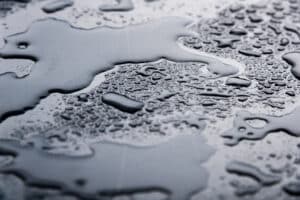The words no homeowner wants to hear this winter — burst pipes.
One of the most common – and devastating – plumbing issues is a burst pipe. And with winter coming up and temperatures lowering, this concern is probably on the minds of many homeowners.
Water pipes throughout the house can burst when the water inside of them expands as it gets close to freezing. The pressure-buildup rises too high for the stiff metal and plastic pipes to contain and the stress causes the pipe to rupture.
With ice blocking multiple sections of the pipe between the water source and the closed faucet, and nowhere for it to go, it’s only a matter of time before you have a burst pipe on your hands, costly mess to clean up and repair, and loss of personal property. We have included tips below to help you prevent your pipes from freezing, even during the coldest days this season.
Run Hot Water From the Faucets
There are several benefits to running hot water from your faucets. Not only will the hot water heat up your pipes as it travels to the tap and prevent ice from forming, but the technique will also relieve the pressure from the pipes.
Turn Up the Heat in Your Home
If you’re escaping the cold this winter and going on a vacation, don’t forget to leave the heat on in your home. The last thing you want to come back to is a burst pipe and mess to clean up.
Open Cabinet Doors and Leave the Garage Door Closed
Even with your home’s thermostat turned up, it may not be enough to reach the pipes under your sink or behind your cabinetry. Leave cabinet doors open so the heat can reach all sections of the pipes.
With that said, you should make sure to always keep your garage door and windows shut. Pipes in older homes can be against exterior walls or in uninsulated spaces and leaving them exposed to the harsh conditions from outside can have detrimental effects.
Add Insulation
A long-term solution to prevent pipes from freezing is installing additional insulation. This is especially important for pipes located in areas without proper insulation, such as attics or basements. Pipes can be fitted with foam rubber or fiberglass sleeves to help decrease the chances of freezing and the walls of your home can have additional insulation installed, as well.
Apply Heating Tape
Applying heating tape to your pipes that are susceptible to freezing may be a slightly less expensive option than adding insulation, but it’s a short term fix. Heating tape has an electric filament inside and once it is wrapped around the pipe and plugged in to an electrical outlet, it works to heat the pipes up and maintain a safe temperature.
Signs of Freezing
While the tips we included above are great methods to try to prevent frozen and burst pipes in your home, they do not guarantee that there won’t be a problem this winter. When looking for signs of a frozen pipe, look for these tell-tale signs:
- Frost on the exterior of the pipe
- Lack of water running out of the tap
- Odd smell coming from the faucet or drain
If you notice any of the signs listed above, it’s important to act quickly and work to thaw the pipe before any damage is done. If your efforts aren’t proving successful, call Schuler Service. We offer 24/7 emergency plumbing services in the greater Allentown area and are happy to restore your plumbing to working order.
Burst pipes are serious, time-sensitive problems that can leave you without water for weeks and with a mess in your home. In a situation like this, there’s no reason not to take advantage of Schuler’s 24-hour service! You can count on Schuler Service for effective, efficient, and respectful service.









